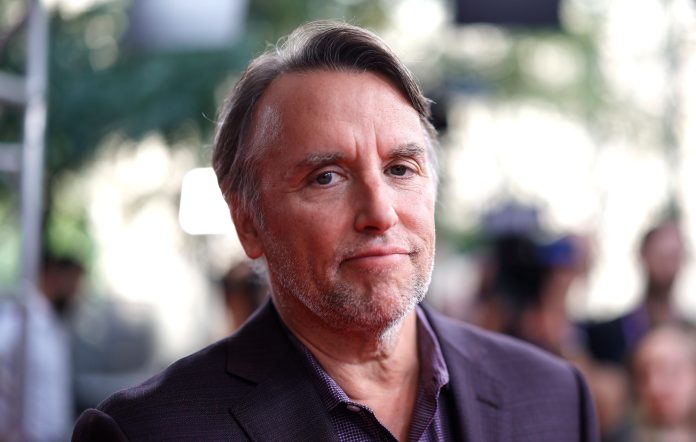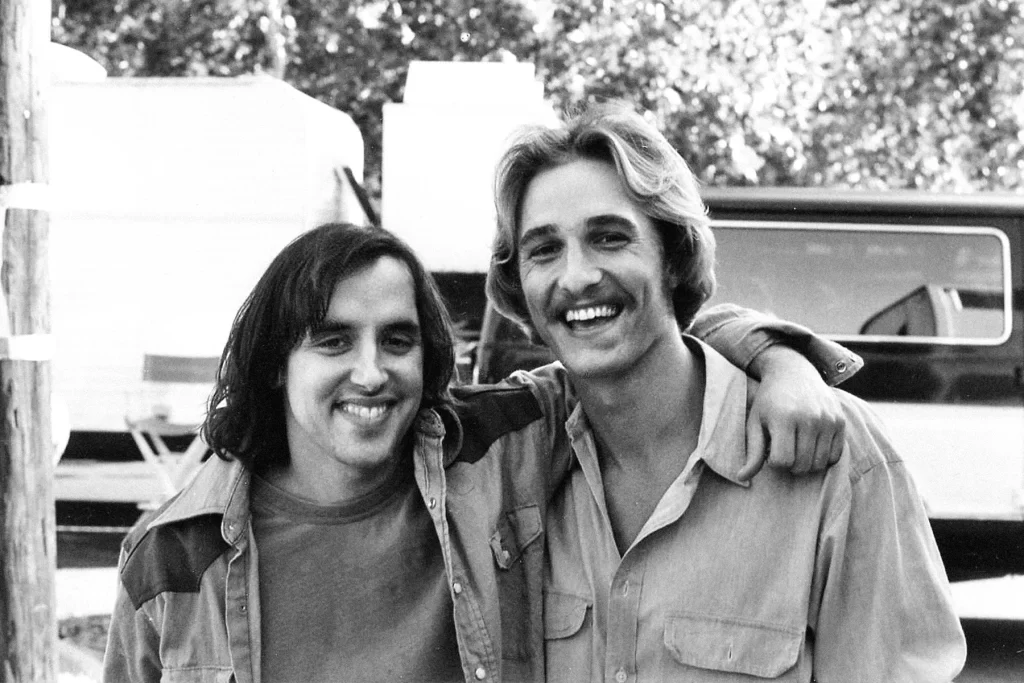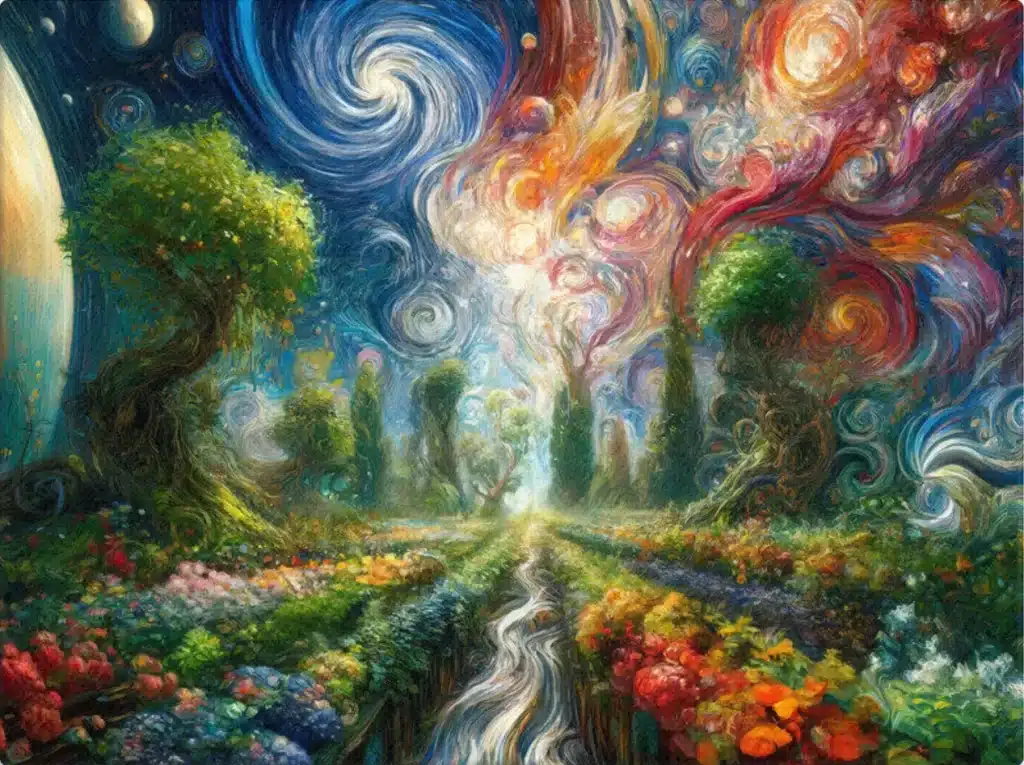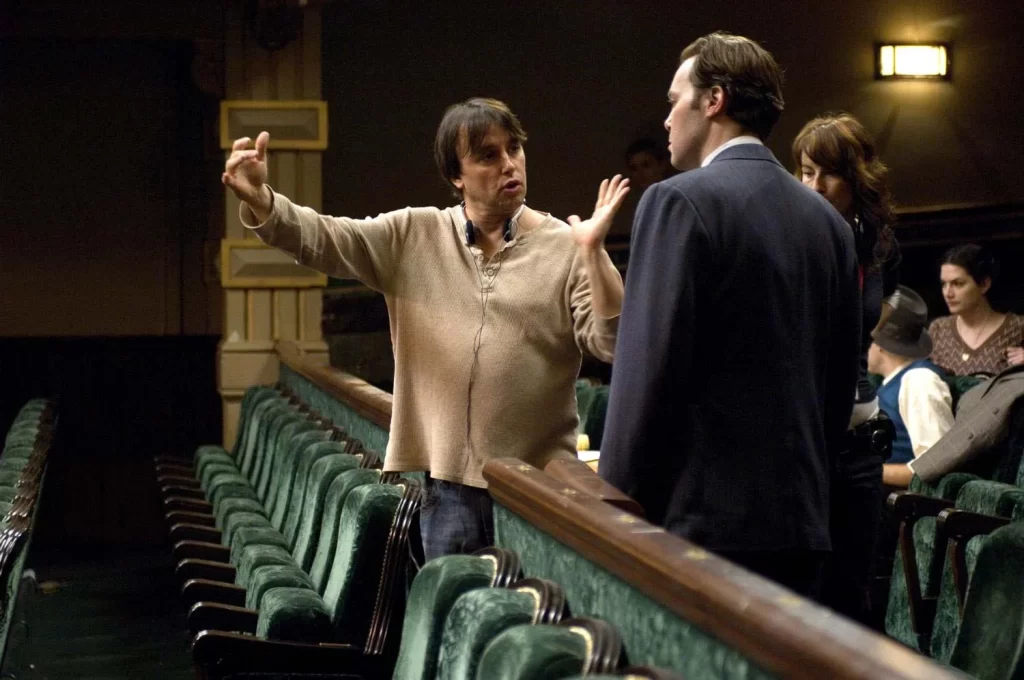Richard Linklater on not going to film school, how he works with actors, collaboration, and his own crash course in filmmaking.

A brief overview of Richard Linklater before delving into his own words:
| Who (Identity) | Richard Stuart Linklater, an American film director, screenwriter, and producer, known for his unique and innovative contributions to independent cinema. |
| What (Contributions) | Linklater is celebrated for his distinctive style and approach to filmmaking. He directed acclaimed films such as “Before Sunrise,” “Before Sunset,” “Before Midnight,” “Dazed and Confused,” “Boyhood,” and “Waking Life.” His work often explores themes of time, human relationships, and the passage of years. |
| When (Period of Influence) | Linklater’s influence on independent cinema and filmmaking began in the 1990s and has continued into the 21st century. His films have garnered critical acclaim and a dedicated following. |
| Where (Geographic Focus) | Born in Houston, Texas, USA, Linklater’s filmmaking often reflects American culture and society, with many of his films set in Texas and featuring authentic portrayals of American life. |
| Why (Artistic Philosophy) | Linklater’s artistic philosophy is marked by his interest in exploring the ordinary moments of life and the depth of human experience. He values naturalistic dialogue and the use of time as a narrative element, allowing characters to evolve realistically over the course of his films. |
| How (Technique and Style) | Known for his use of long takes, conversational dialogue, and a focus on character development, Linklater’s filmmaking style is characterized by its realism and authenticity. He often employs non-linear storytelling and has a talent for capturing genuine human interactions on screen. |
This post is a collection of selected quotes and excerpts from secondary sources used for educational purposes, with citations found at the end of the article.
Wanting A Career In Film
I remember feeling like everything outside my life that wasn’t cinema was kind of this void, you know? Relationships, family connections, everything. It was probably that necessary period where you have to sort of separate yourself from everything you knew before, as you sort of define yourself as an adult. I have a lot of sympathy for people in their 20s who are sort of wanting to do something different, discover what they’re passionate about, live a life of purpose, to feel like what they’re doing with their time is valuable to themselves or their community.
If you just go straight to business school, get a job, and get married, that’s the typical track. But there are always people who are looking for something else, having a lengthy existential crisis about what anything means. And I’ve always had a soft spot for that because that was really me. Although, I have to say, cinema was the thing that saved me. From age 20 on, I had that kind of focus. What engaged me was film, which is a great thing to fill up your entire life because it encompasses everything.
As alienated as I was from everything in my 20s, I remember I was lucky to come from a very nice family that didn’t give me too much. I mean, there were subtle hostilities about me not doing anything with my life, but I wasn’t asking them for any money, I guess. I was lucky to live in a tolerant atmosphere of a town like Austin, where it’s okay to be a grad student until you’re 40, or whatever. You have 380 hours of school and not have graduated because you were lacking one requirement or something. You can just sort of hang out in coffee shops, and you know, have a little job, and live your life.
Family pressure is worse, usually, than societal pressure, as we all know. And I feel pretty blessed that a few people, even though I was officially a college dropout and was underachieving and had nothing to show for myself through most of my 20s, they were kind of like, ‘Oh, well, you’re doing what you want, you know.’ My mom and grandmother, especially, I remember thinking they were cool. You know, dad had to be a little more like, ‘Well, you know, should kind of maybe think about getting back in school,’ you know, just that kind of friendly advice about subtly getting your act together.
And a career in the arts wasn’t really a very plausible or practical goal, and it’s not. But I remember not caring. It’s like I was content to live in a hole, read, watch movies, and get money wherever you could get it. It was fun to try to explore. I wouldn’t do anything else. It was like a good foundation for what I would try to be doing later, but at the time, I didn’t know there’d be a later. I really thought this would be the only film I ever made, quite possibly. And if so, then I wanted to just be honest with myself and go, ‘I made a film once’. I’d be older, going, ‘I made that film once,’ and that was my life at that time.
I think if I hadn’t had the outlet of film, I would have been probably in more trouble on a lot of levels. It’s a good place because it requires all your energy and everything you might possibly have. 1
On Not Going To Film School
I often joke when people ask if I went to film school, I say, ‘Oh, I went to the Stanley Kubrick film school,’ which means you just buy a camera and you learn how to use it and start making movies. That’s as good as anything else. I lived near the University of Texas film school, had a lot of friends who went there, and I would sit in on classes, go to student film screenings. I felt I had some connection there even though I was never enrolled.
As far as my own stuff goes, I had a personality where I just wanted to do it on my own. I didn’t want to be judged. I was naturally very shy and with what I wanted to do, I knew it wouldn’t fit into that [film school]. I’m always anti-institutional, I’ve never really gotten along in the academic environment too well. Not that I’m some big radical or anything, it just always kind of bugged me. I felt like there were constraints there that I didn’t want to listen to.
For film, you don’t necessarily need that if you’re a self-motivated person, which you need to be for film anyway. That’s lesson number one. School’s not going to teach you that or give you those skills. You just kind of have to do it. 1

His Crash Course In Filmmaking
I have a lot of sympathy for filmmakers making their first films. It’s so much work to pull it together. You’re finding out what you don’t know, which is endless. It’s hard to be a leader, hard to communicate with people. I cut so much of that out of my dialogue altogether. I didn’t want to explain anything to anyone. I didn’t know how to even talk to anyone about what I was thinking. So, I just decided to do this film alone and see what happens.
There were some filmmakers I liked quite a bit who had done that, more or less. So, I thought, ‘Okay, well that’s challenge number one.’ I’ll do every technical element of this movie. I’ll shoot it, light it (where necessary, I’d like to not light too much), edit it, do the soundtrack, do everything, whatever sound work, everything about it. That was a nice little crash course in filmmaking.
Years later, I can sit here and say, ‘Yeah, I can do all these things.’ I can record sound, edit, light. It’s not my forte, it’s not what I enjoy doing, but I can do it, having done it a lot. Everything you know, you kind of go into something confident, knowing what everybody you’re working with is up against. The value of well-recorded sound, for instance, becomes clear when you’ve spent a year looping or trying to make something work better.
I’m talking about my first two films here. It was a nice technical challenge for myself and also kind of fun, going through life thinking, ‘Okay, I’m working on something bigger.’ To be engaged in an ongoing process was thrilling. 1
Consuming Films
A year or so after I moved to Austin, I started watching more films, three films a day. There were certain directors whose work I wanted to see more of. Austin Film Society kind of grew out of that. We showed a lot of movies, more Bergman films than just ‘The Seventh Seal’ and ‘Wild Strawberries,’ more experimental films, documentaries, or kind of cult films. This was before everything was on video, so there was this great need.
I was lucky to fall in with some like-minded friends. We all were sort of, you know, raging with the ideas of film. It was a great period in my life. Myself, roommates Lee Daniel, BR Danders, we were the film guys in a music town like Austin. There was a circle around us of people who kind of came and went, usually living in our house. It was just a really exciting time, like a whole world had opened up.
I’ll never forget it. I would spend all my time reading about film, watching movies. That’s just what we did. We showed films, promoted them, talked about films, went to every film. Life was pretty great. Film had taken hold of me as worth my time. It was a matter of seeing masterpieces and interesting films that I’d never seen before. I quickly started going to the library, checking out books on the French New Wave, referencing directors, studio writers, actors. I was just kind of devouring everything around me, all to do with the history of film and different national cinemas.
I remember I had one book that had gotten through a book club or something. It was called ‘The Technical Aspects of Filmmaking.’ I’d look at it fairly regularly, thinking, ‘Okay, I’m going to wait for you. I’m not going to read you just yet. I’m going to do another year of film history.’ I was doing my own version of film appreciation. 1

Learning to Collaborate As A Filmmaker
On Slacker I learned to actually collaborate. My biggest leap wasn’t from Slacker, a super low-budget indie movie, to Dazed and Confused, a studio film, but from Plow, made completely alone, to Slacker, communicating with seven people who aren’t getting paid and like why should they make my film and listen to me? Who am I? What motivates them?
You get their trust. They showed up on time. Several of them were skeptical by nature so I would have to say, “No, here is the shot. Start here, we’re going to do this all in one shot.” And my DP Lee Daniel was like, “OK, let’s do it.” So, he was with the cinematic challenge of what I wanted it to be and we got that. He was with my plan.
You’re doing the DP a favor if you know every shot you want and how you’re going to use it. If you head in with no visual plan whatsoever, you will probably get something that looks like a TV movie. You have got to have the courage of your convictions because the world is going to give you some really well-meaning but really mediocre ideas. The people who love you the most will bring you really well-meaning ideas for what you should be doing with your life. And if you listen to all those, you will probably have a pretty boring life. You need to say, “Thank you, I love you, but here’s what I want to do.” You’ve got to have the courage of your own crazy ideas for what you are doing on every little thing. 2
What I live for is mixing it up with other people and artists, having a good time and expressing ourselves. It’s sort of like I create the sandbox, but I’m inviting people to come and play in it. It’s the spirit of film, I just want to have a good time. But the director in me is striving to make the best thing possible for what I have in mind, which requires someone to come at me with more ideas than I could ever imagine. That’s what good collaboration is, whether it’s with an actor, a writer, a composer. People together on the same wavelength, building on an idea. When I work with someone, we both end up somewhere neither anticipated. You plan everything on paper, and you do all the homework and prepare, but the alchemy happens when you mix it up with others. To me, that’s cinema. A cameraman like Sven Nykvist; his best work is with Bergman. With someone else, it’s good, but it’s not the same. Those two guys go to some level together in which one needs the other. Same with directors and actors. 3


Sponsored: Canvas wall art paintings of nature and the cosmos.
How He Works With Actors
A key moment for me was with Charles Gunning, one of the few professional actors I worked with on Slacker. I cast him later in The Newton Boys and Waking Life. Sadly, he died about 16 years ago. It was fun working with him on Slacker, but at the wrap party, he came up to me and said, “Y’know, this is going to be a great film, but I found you a little vague as a director.” I asked him what he meant, and he said that I didn’t tell him exactly what I wanted.
Now, I thought I had been communicative, but thinking about it again, I had been spinning so many plates getting the movie done that I wasn’t as assertive a director as I should’ve been, maybe wanting to massage people and not hurt their feelings. I realized that from then on, I needed to be more decisive and specific, especially with actors.
With actors, it starts with talking with them about their character, letting them explore the character, and then preparing with three weeks of rehearsal, which I think is essential. After that, the process can be a little different depending on the movie.
So with Before Sunrise, which I originally wrote with my writer friend Kim Krizan—most of it was there on the page. I never told Julie (Delpy) and Ethan (Hawke), “This is what it’s about,” and that I didn’t care if they did the lines word for word. I even had a scene, in a Vienna café, where their relationship goes to a whole other level, without written dialogue. I told them, “I can’t tell you exactly what they’re going to say, and we’ve got to earn it.” And it has to be one of the movie’s best moments, since both start “here,” and they get “there,” and they earn it. 2

There’s No Overnight Success
I had made probably 15 shorts and a feature before Slacker [his successful second film]. I didn’t just go from college dropout, never seeing a movie. I watched thousands of movies. There is no overnight success. I know that’s a good story. Like I was this guy on the street, this idiot savant filmmaker. But it’s really not the case. 2
It’s rare to see a young filmmaker. I mean, there are a lot of young filmmakers and a lot of young people who achieve a lot in film, but I didn’t think I would be one of those. I knew I was coming to it late. I’m thankful for my background now, that I wasn’t a guy at 9 years old who knew he wanted to make films. I came out of it more from literature, philosophy, theater, before I discovered cinema. I was always coming at it from more of a theoretical standpoint, without being academic. I’m far from that. I’m sketchy on my own education.
It’s all just been my own reading. So, I don’t feel like I’ve filled in all the academic gaps, but it’s been my own subjective path. Whatever gaps it leaves, at least your own learning has been yours. You know, it’s been what I was interested in. Here’s a filmmaker I really liked, here’s who he liked, and they taught me this. I went from there to there, here’s a writer I liked. So, you know, you’re on your own subjective learning path.
There’s no overnight success. There are no idiot savant filmmakers. It’s a lot of work, and people don’t want to hear that. They want to think, ‘Oh, you just did it, wow.’ Like, remember when J.K. Rowling, they figure, ‘Oh, she was on the dole, oh well, she’s been writing since she was a kid.’ They want to think, ‘Oh, I could be on the dole. Maybe I could be a bestselling writer.’ It’s like, no, you probably can’t. No one wants to think how they would have to alter their life. By the time ‘Slacker’ came out, I could honestly say I’ve put in more time into cinema than anyone could. 18 hours a day, my whole life, every day, for all those years was 100% devoted to cinema.
All my own projects, things I was working on, watching movies, reading. That was my crash course over many years. So, in some way, it’s kind of insulting when you’re treated like the overnight success, but you in your heart know that’s not the case. You see these films, and you think, ‘Well, in a way, that seems accessible. Like, I can get a 16mm camera, and maybe I can do that.’ And I was flattered years later when people come up to me and say, ‘Slacker was that film to them.’ They saw ‘Slacker’ and thought, ‘Oh, I can just go, I can do that too.’ Which is a compliment, sometimes…it’s a compliment, sometimes a backhanded one, by saying, ‘Oh, if you can do that, it’s not that impressive. I can do that too.’ You know, Kevin Smith talks about that with ‘Clerks.’ People see it and think, ‘Man, I can’t do any worse technically than that.’ But what they often can’t do is write dialogue like that, or there’s always something beyond that makes it a little more difficult than the viewer thinks.
The biggest misconception is people see someone’s first film and think that’s what they did on their first day as a filmmaker. So when people started treating me like when I did ‘Slacker,’ like I just picked up a camera five minutes before, I always was really insistent on telling them, ‘No, no, I’ve been doing this for a long time.’ Actually, I did a Super 8 feature before this. I have a closet full of shorts. I’ve been at this, you know, years and years at this point. 1
You Learn Best By Doing
I had worked on Texas offshore rigs for 2½ years and had saved up like 18 grand. I bought film stock and a bunch of equipment. All I did was read, watch movies, edit film and get good at it. I found that this is what I wanted to do. I caught that great run of being a kid in the ’60s so I have ’60s awareness. I was little but I remember it, you know. It’s an established fact, I hope, that that was the great time to come of age.
And then the ’80s was a really great time to go underground, to say “fuck you” to the Reagan years. What I needed was to obsess on making short films no one will ever see but that I’m doing to learn. I was going to teach myself this stuff because I thought I could. I studied people’s careers, and read interviews. I thought, “Well, if you are going to make it in the film world as a director, you have to be such a self-driven, self-starter anyway. You have to have that so if you are the kind of person who is going to sit back and be educated instead of educating yourself, you are probably not going to—it is such an active role.”
So, I said, “That’s me anyway, I don’t really like authority, I don’t like teachers telling me what to do. I am going to do this alone and succeed or I am going to do it alone and fail privately.” But I was going to get there myself. It would have been almost too much to be a film major and feel like I’m making a public declaration of what I wanted to do. I was going to do it, underground, my own way, and work really hard at it. I was good at electronics and woodworking, and I was just confident in my own grasp of the technical tools of filmmaking. If you aren’t good at it, no one is going to be able to teach you to be really good at it. You learn best by doing it. I figured that if I was really a director, I’d be able to do it. 2
Sunday Museletter (Free)
Ignite your creativity with hand-picked weekly recommendations in music, film, books, and art — sent straight to your inbox every Sunday.
Next up: Jiddu Krishnamurti on Creativity and Conditioning.
References
- Richard Linklater on being a self-taught filmmaker, YouTube
- Richard Linklater Interview, Directors Guild of America, 2018
- A Conversation with Richard Linklater, By Michael Koresky and Jeff Reichert

 1 painting, album, film, and book recommendation every week.
1 painting, album, film, and book recommendation every week.